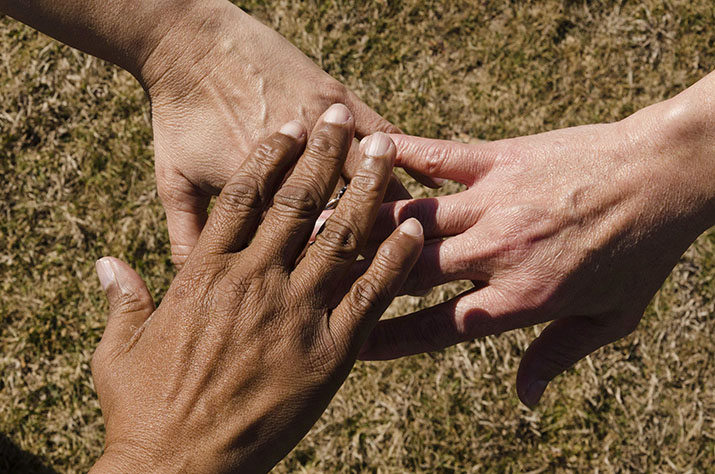HAPPENING AT THE UN
INTERNATIONAL DAY OF LIVING TOGETHER IN PEACE
Many Western citizens live in countries that have not experienced an armed conflict for over seventy years. In some areas of the "old continent" there hasn't been a bombing since that time, but things are already changing beyond the Adriatic Sea. We only need to think back to what happened between 1991 and 2001 in the former Yugoslavia. The end of the Second World War, for many, heralded a long period of Peace, and gave the illusion that nothing like it could ever happen again.
The long period of Peace following the Second World War gave the illusion that nothing like it could ever happen again
One gets the impression that in the second half of the twentieth century the conflicts were limited to the "cold war", to those of the Balkans, and to some territorial problems scattered here and there. But it is a wrong impression, a kind of psychological synecdoche, in which we mistake the part for the whole. We look at the garden of our house and think that flowers grow in the same way everywhere.
In the world the number of wars has never even touched zero, and the conflict in Ukraine is only the latest in a very long series of territorial and political disputes. Now we notice it more because the shooting is a few kilometres from our homes, but we're getting used to this too.
The difference compared to the last century is not the place where wars take place, but the parties involved
According to experts, however, the substantial difference compared to the last century is not the place where wars take place, but the parties involved. Most of today's conflicts are not waged between states. According to the United Nations: «Protagonists today are above all political militias, criminal gangs or international terrorist groups. Unresolved regional tensions, the collapse of the rule of law, the absence of institutions, illicit economic gain and the lack of resources are the main causes. All exacerbated by the weight of climate change».
Not only are there more wars than before, but they are also harder to avoid or to end. For this reason, the International Day of Living Together in Peace, celebrated by the United Nations on 16 May, is not an exercise in gratuitous kindness, but a moment in which to reflect on finding new ways to face new "challenges". The Day aims to stimulate the international community to produce the necessary efforts to promote the tolerance, solidarity and inclusion necessary to maintain peace. Tolerance, solidarity and inclusion are not free, we must work towards them. For example, as suggested by the UN, « by working with communities, religious leaders and other relevant figures, through reconciliation measures and acts of service and by encouraging forgiveness and compassion among individuals ». For this reason, affirming the stance "for Peace" does not necessarily imply "against war" in a generic sense, but rather working so that those in need receive help. No one is marginalized, and above all the word "tolerance" is abolished from the dictionary, as there is no need to "tolerate" those who are "different" for we only need to accept and welcome them.







